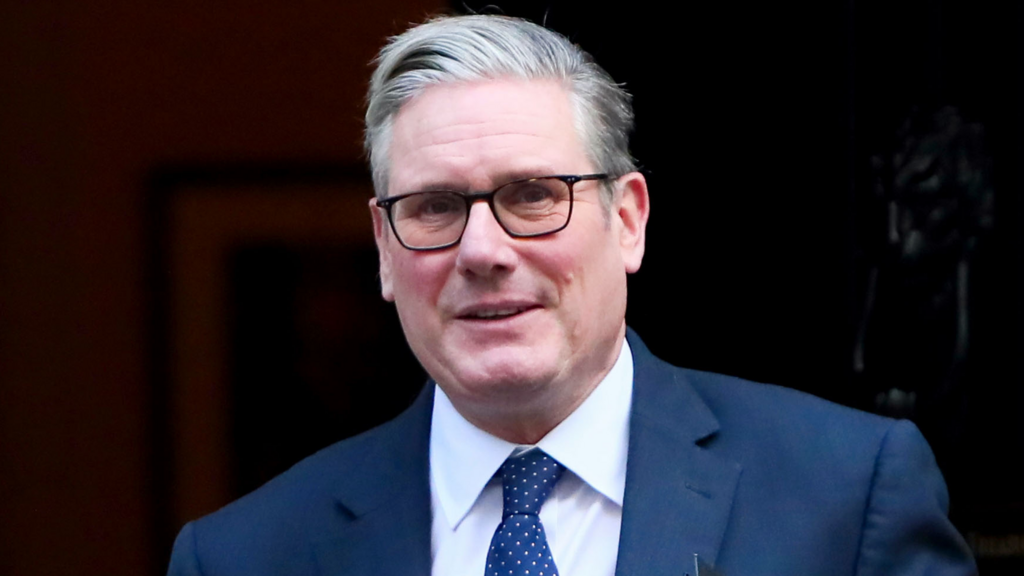“`html
The government has clarified that its proposed digital ID scheme will not be retroactive, requiring UK workers to adopt it only for jobs applied for after its anticipated implementation by 2028.
Announced in September by Sir Keir Starmer, the initiative aims to prevent individuals from “slipping into the shadow economy.”
It is now confirmed that the scheme will be mandatory solely for employment commenced following its launch, which government ministers expect to occur before the end of the current parliamentary term.
Speaking with BBC News, Sir Keir emphasized that the broader objective of digital ID is not to be compulsory, ensuring that individuals who opt out will still have access to essential services, including healthcare.
“You’ll never need ID to go into a hospital or anything like that,” he stated.
“For people who simply don’t want it, well, they don’t need it – apart from the right to work.”
Public reception to the idea remains uncertain, as evidenced by a petition against the scheme that has garnered nearly three million signatures.
During his BBC interview, Sir Keir outlined the potential benefits of digital ID, which would be available to all UK citizens and legal residents.
He explained that the goal is to simplify processes by “cutting the faff” associated with providing multiple forms of identification for activities such as university applications, home purchases, or rentals.
These tasks often necessitate engaging and paying third-party services for official verification.
Chris Norris, head of policy at the National Residential Landlords Association, expressed to the BBC that the organization would welcome any measures that streamline the verification of prospective tenants.
“Where it may prove useful is in standardising the type of ID available,” he commented.
The Prime Minister also told the BBC that digital ID could mitigate banking fraud by hindering criminals’ ability to access private accounts using forged or stolen documents.
A public consultation is scheduled for late 2025; however, significant public opposition and confusion surrounding the scheme’s nature already exist.
“Public opinion is largely split,” noted technology specialist Rachel Coldicutt.
“There’s a group who will welcome this, who use the wallet app on their phone every day and want that seamless service, another group who openly don’t welcome it – and another group muddling through who don’t want any more admin.”
She added that the UK has a “fairly thriving” market for independent digital ID providers, characterizing it as “a local home-grown industry”.
“If the government expands its digital ID offering, it could kill off a growth industry,” she cautioned.
The prime minister’s remarks appear to have done little to assuage the concerns of those with privacy objections.
“Keir Starmer has already lost the public’s trust on digital IDs,” stated Silkie Carlo, head of civil liberties campaign group Big Brother Watch.
“The only way to safeguard the public’s privacy and right to choose is to reject plans for a mandatory digital ID, as millions of people have petitioned the Prime Minister to do.”
However, the PM denied it would ever be used as a surveillance tool – and said the personal data which would have to be involved in creating it would “absolutely have very strong encryption”.
It would also exist on your device rather than being stored in data centre computers, for additional security.
While making it non-mandatory may address some of the criticism around digital inclusion and those without access to smartphones, it may also make it a less powerful tool as a result.
Digital ID is already in use in many countries around the world including India, Denmark and Singapore.
China has introduced a voluntary system this year but there are fears about its likely use by the police to track online activity. One of the first countries to adopt e-citizenship was Estonia in 2002.
Sir Keir did not expand on who might operate the UK digital ID scheme and whether it was likely to be a US tech giant.
It has emerged today that it will now be overseen by the Cabinet Office, rather than the Department for Science, Innovation and Technology, which is responsible for other government digital services.
Sign up for our Tech Decoded newsletter to follow the world’s top tech stories and trends. Outside the UK? Sign up here.
The expert behind the research on which a £300 savings pledge is based says the promise is “tricky” to deliver.
The home secretary’s response comes after The Times revealed a report calling the Home Office “dysfunctional”.
The former deputy PM says her resignation had been “incredibly tough” on her family in an emotional speech.
Council leader Linden Kemkaran asks members to sign a statement to “counter all the negativity” .
Eleanor Wills, who leads Labour-run Tameside Council, says some are “crossed” with their local MP.
“`

